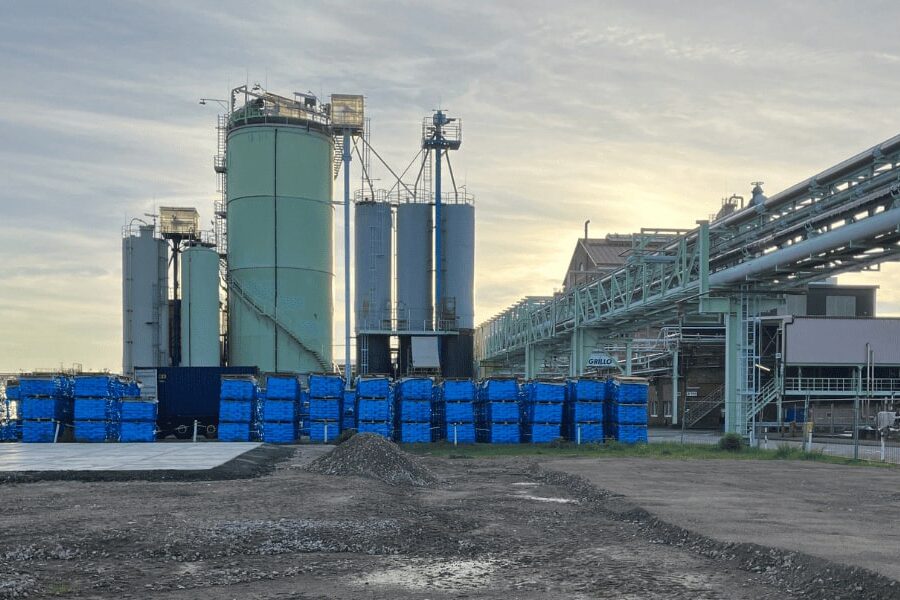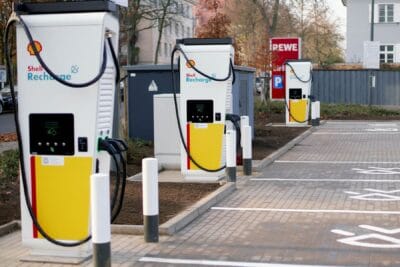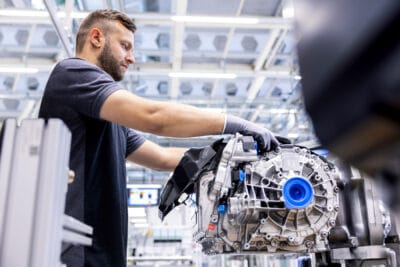Vulcan produces first lithium hydroxide in Germany
Vulcan wants to extract lithium from geothermal brine and thus create a local source of sustainable lithium in Europe. Vulcan’s combined geothermal and lithium resource is the largest in Europe, with licence areas concentrated in the Upper Rhine Valley in Germany. In February 2023, Vulcan announced the results of a definitive feasibility study for the first phase of its lithium project, according to which Vulcan initially intends to produce 24,000 tonnes of lithium hydroxide monohydrate (LHM) per year. It is made from lithium chloride in a multi-stage process.
Vulcan has set up two test plants in Germany to refine the processes for the subsequent commercial plants. In April, the first lithium chloride was filtered out of the geothermal brine in the so-called LEOP (‘Lithium Extraction Optimisation Plant’) in Landau. In November, this preliminary product was further processed into battery-grade lithium hydroxide in the Central Lithium Electrolysis Optimisation Plant (CLEOP) at Industriepark Höchst.
“The result: a fully integrated supply chain from the raw material to the final product. This is not only an important milestone for Europe’s independence from critical raw materials, but also for the transition to green mobility,” says Vulcan Energy in its German press release. The LEOP and CLEOP will primarily be used to carry out product quality tests – they are designed on a scale of 1:50 to the later plants. The commercial central lithium plant (CLP) will also be realised at Industriepark Höchst.
The lithium hydroxide produced in the CLEOP will now be made available to Vulcan Energy’s partners for product validation in the first project phase. These are Stellantis, Renault, LG and Umicore.
Vulcan states that it does not use fossil fuels to extract and process lithium. In the LEOP, the company says it uses renewable heat for the adsorption process (A-DLE). Green electricity is thus used for the electrolysis process that takes place in the CLEOP. By using this method and the short supply routes to the European automotive and battery industry, Vulcan aims to achieve a low carbon footprint and “realise one of the most cost-effective supply chains for lithium worldwide.”
“Today marks a significant step forward in Vulcan’s aim to establish a domestic supply chain that provides the European automotive industry with green lithium for the production of electric vehicle (EV) batteries,” says Vulcan’s Managing Director and CEO, Cris Moreno. “This is a world-class facility which is already producing the first sustainable lithium hydroxide from raw material to end product, which is important for Europe’s independence from raw materials and for the transition to zero emission mobility.”





0 Comments